How has the COVID Pandemic Affected Maker Spaces
How has the COVID Pandemic Affected Makerspaces?
In the past several years, I have visited four makerspaces in southern California, and I recently decided to see how the COVID pandemic had affected these facilities. Makerspaces play a role in reviving the entrepreneurial “maker spirit” necessary to rebuild and grow American manufacturing.
The first center I had visited several years ago was MakerPlace, located in San Diego, California. MakerPlace was founded in 2012 by Brian Salmon, Michael Salmon, and Steve Herrick. It was touted for its promising concept of a shared “dream garage,” where hobbyists or professionals could use high-end tools and industrial equipment to make their creations. It had equipment for metalworking, electronics, embroidery, sewing and specialty tools such as laser cutters and engravers. It also rented out studio and office space, making it a sort of workshop/coworking hybrid.
When I called to talk to the owner, I was unable to connect, so I searched online and found two articles in the San Diego Union Tribune. The first article from December 6, 2019 said that the sole remaining business head of the company, Steve Herrick “decided he was ready for retirement and sought a buyer.” In December 2019, Joseph Henseler and his wife and partner, Lorena Isabelle took over as the new owners. Hensler had ran his construction and design firm, Duende out of the MakerPlace for six years.
The second article, dated February 2, 2020, stated that MakerPlace “has abruptly shut down, asking members to remove all their belongings in less than 10 days. The shop sent an email to its members with few details about the closure. ‘MakerPlace is officially closing,’ the email reads. The building will be open “only for picking up your own personal items/tools/materials. Anything that’s not picked up by Feb. 14 will be forfeited.” The announcement of the closure came as a shock to members, and some had paid in advance for months of use.
Since the announcement of the closure occurred prior to the shutdowns for the COVID pandemic, it is likely that MakerPlace closed for financial reasons not caused by the pandemic.
The second makerspace that I had visited on Manufacturing Day in October 2016 was Open Source Maker Labs (OSML) in Vista, California. OSML is the only makerspace in North San Diego County. Dan Hendricks opened OSML in 2013 to provide a high-tech digital fabrication lab where members can learn, collaborate, innovate, design, and build almost anything. Their lab is filled with open workspace and tools: electronics, CNC machines, 3D printers, laser cutter, panel saw, press brake, welding and soldering tools, drawing and modeling programs, and a computer lab.
When I spoke to Dan last week, he said they closed down for two weeks until they realized they fit the definition of an essential business that was allowed to stay open under Governor Newsome’s order.
I asked what he has had to change. He said, “We follow the stage 2 guidelines and limit the use of our labs to members by appointment only and limit the number of people based on our square footage. We practice a smart sanitization routine for our Maker Lab. We only lost a couple of older members worried about their health, but have picked up some new, younger members. We haven’t had to turn anyone away. We focus on R&D technology and have a lot of the software needed for designing new products. We offer a co-working incubator-type atmosphere for startup and existing small to medium-sized companies.”
He added, “I’m an Adjunct Professor at Cal State San Marcos, so we are doing some online classes in partnership with the college. I will be doing an online class on IIoT for the next term. Our strategy was to ride out the pandemic and not change to be ready to help with the recovery and support the new companies that will form during the recovery and provide R&D resources for existing small and medium sized companies to do their R&D at our facility.
In 2016, I also visited Vocademy – a Maker Space in Riverside, California, founded by Gene Sherman. Vocademy was a combination of the “best parts of makerspaces, school shop classes, trade schools, R&D labs, and dream garages, all in one place. His dream was “to solve the skills gap for the manufacturing industry.” Unfortunately, it was Sherman’s focus on providing shop classes for schools and being a vocational trade school that made Vocademy an early casualty of the COVID pandemic so that it closed down on March 20, 2020 after Governor Newsome ordered all schools and non-essential business to shut down because of the COVID pandemic. An article in the Press-Enterprise of March 28th, stated: “Vocademy…can’t afford to stay open due to the state order mandating business and school closures, wrote Gene Sherman, the nonprofit’s founder and CEO.
The academy partners with schools, and when those schools closed until next school year, 70 to 80% of Vocademy’s revenue was lost, Sherman said in an email.
In addition, many of our current students did not wish to attend class and other potential community students told us they will not be signing up because of virus fears, Sherman wrote. “We are a small business and, unlike a public school, our revenue does not come directly from educational funding.”
It broke my heart to hear that Vocademy has closed because providing vocational shop classes to youth is critical to providing the next generation of manufacturing workers need to rebuild American manufacturing.
I had visited Urban Workshop in May 2018 after attending a conference. The Urban Workshop Is located in Costa Mesa and was founded by and is privately owned by, Steve Trindade. The 28,000 square foot floor plan includes workshop areas for a variety of manufacturing processes, co-working office space, a work assembly area with assorted hand and power tools, storage space for work in process and materials for members, a conference room, a large meeting room, and a retail store offering convenience materials and consumables.
When I interviewed Steve last week, he said, “We were closed for 60 days before re-opening. I sent a heart-felt message to members and most of them continued to pay their membership dues and monthly charges for storage space. We told them we would make it up at the end after we reopened. We lost our hands-on contract work with a charter school, but we were able to make 50 videos for their online education program.”
He explained, “What saved us is that we have four different revenue streams: membership dues, fees for storage space for members, fees for classes, and co-working space. We made some decisions early on that were based on my experience in ramping up and down for the racing industry I was in previously. We went down from 330 members to 180 members, but went back up to 335 members within 80-90 days of reopening. We implemented a stringent sanitizing program and members have to make appointments”
He added, “We are continuing our program to license our operational procedures and class documentation to other makerspaces as a “Maker Space Blueprint,” provide operational training in setting up and running a makerspace, and provide instructor training to enable them to succeed and prosper.”
I told him I was glad they have survived the effects of the pandemic because makerspaces play an important role in rebuilding American manufacturing. We agreed that new businesses will be formed by people who have lost their livelihood during the pandemic just as previous recessions spurred the formation of new businesses

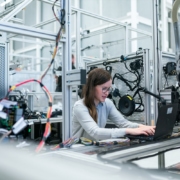
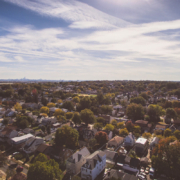
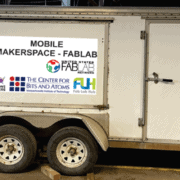


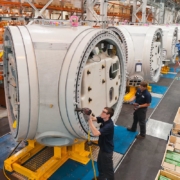
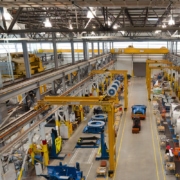



Leave a Reply
Want to join the discussion?Feel free to contribute!